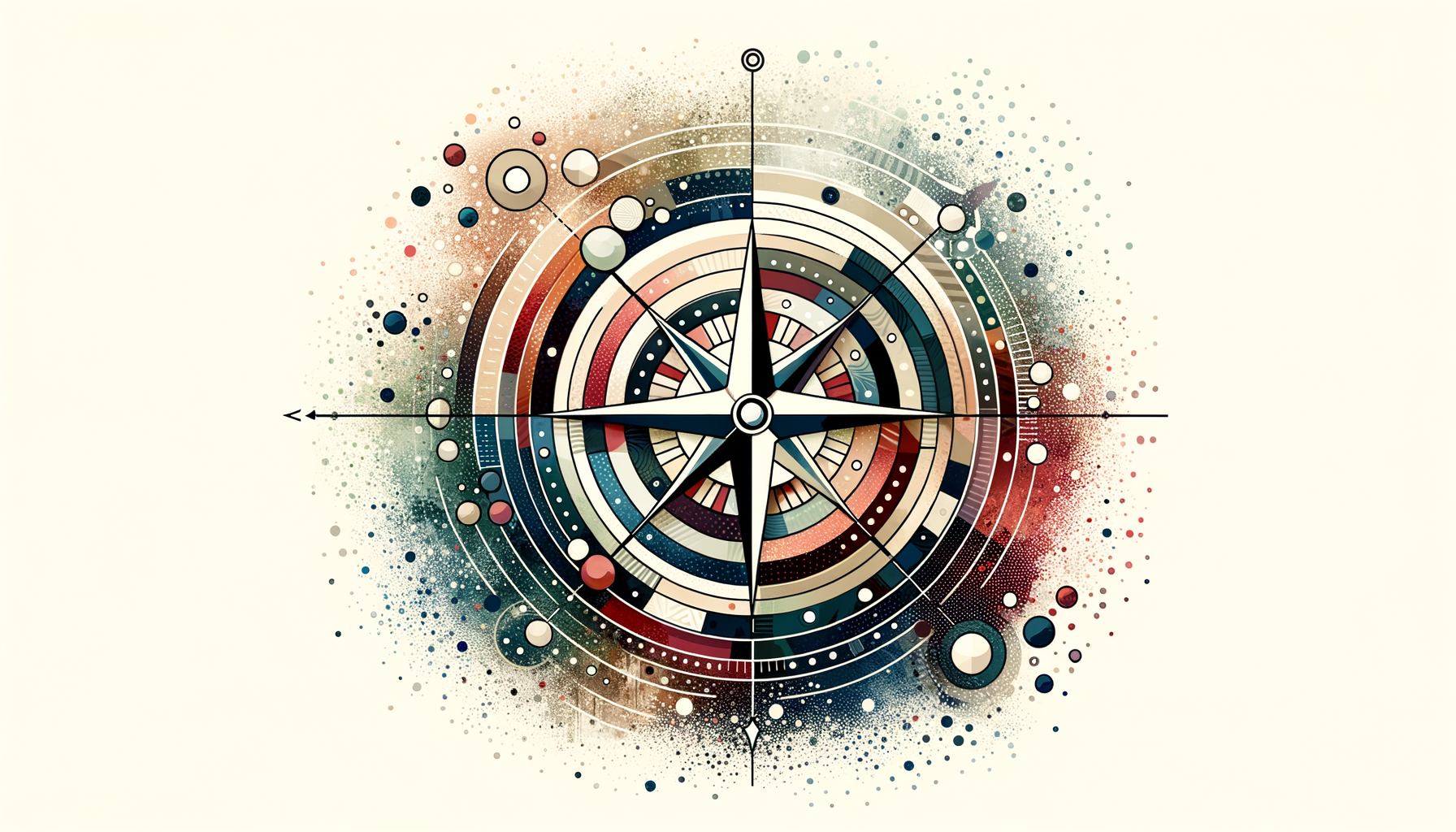What do you stand for? It’s one of those questions that sounds deceptively simple—like being asked to pick your favorite ice cream flavor, only to stand dumbfounded in front of 31 options while the line behind you grows increasingly hostile. I mean, do you go with the tried-and-true classic (chocolate, obviously) or the bold risk-taker (s’mores with chili flakes)? It’s a conundrum. And yet, despite its simplicity, the answers to "What do you stand for?" are foundational—they shape our choices, our conversations, and the way we connect with others.
For me, standing for something means living aligned with what matters most. It’s less about big, sweeping statements and more about the quiet, daily decisions that make up a life. As someone who writes about dating and relationships—and who often reflects on my own upbringing and values—I know that what you stand for shows up in the little things: how you love, how you argue, what you tolerate, and what you don’t.
So here’s what I stand for (spoiler alert: it’s not just chocolate ice cream).
Section 1: Authenticity—Because Faking It is Exhausting
People often ask what growing up in a Mormon household taught me about relationships. I could talk about family values, commitment, or how to politely decline a handshake because you’re balancing a plate full of green Jell-O (Utah stereotypes, alive and well). But the real lesson? Step up and be real about who you are.
There’s a story I love to share from my college years. One day, while on a first date, I found myself nodding along as the person across from me waxed poetic about hiking “The Subway” in Zion National Park. I’d never been, but I wanted to sound outdoorsy and rugged—even if the closest I’d come to being “rugged” that week was tripping over my hiking boots at home. Predictably, I was caught when my date asked, “So, was your favorite part the waterfalls or the canyon walls?” Look, I burnt my glance down to my Diet Coke as if its bubbles held the answers. They didn't.
Pretending to be someone you’re not—whether to impress a date, coworkers, or the moms in your kid’s soccer carpool—is the fastest way to lose your balance. Authenticity is like a steady footing on a hiking trail. Being fake? That’s the loose gravel. You might get away with it for a second, but eventually, you’re going to wipe out in front of everyone.
So, here’s a tip if you’re navigating relationships or even friendships: honesty isn’t just virtuous—it’s practical. Be upfront about your strengths, quirks, and flaws. Trust me, no one’s falling in love with the fictional adventure-seeking, canyon-scaling version of you. They’re falling for the real you—clumsy boots and all.
Section 2: Slow Down—There’s No Trophy for Rushing
The world wants everything yesterday. Amazon delivers orders in a day, Instagram stories disappear in 24 hours, and dating apps give you instant access to hundreds of people with a single swipe (though, remember, this isn’t about swiping). It’s a fact: speed has become the expectation, and relationships are not immune.
But here’s the thing—relationships are not ramen noodles. You can’t just add water, press some buttons, and expect something nourishing to pop out in 90 seconds. (And if you’re reading this while eating actual ramen noodles, no judgment. We’ve all been there.)
Some of the most valuable connections in my life—friends, significant relationships, even family bonds—grew over time. I think back to late-night talks in the Wasatch Mountains or the time it took for me to figure out how to properly apologize in a relationship (Hint: “I’m sorry you feel that way” is not an apology). There’s beauty in slowing down. The most meaningful things aren’t rushed.
If you’re struggling with the idea of investing time in a connection, start small:
- Put your phone down (yes, even during commercials) and listen during conversations.
- Take the scenic route, whether that’s literally driving the long way home or just lingering over dessert.
- Stop clicking the “skip intro” button on Netflix next to your partner—it’s two minutes, not the end of the world.
In a rush to find “The One,” people often miss the chance to connect with the person who’s right in front of them. Relationships aren’t a transaction—they’re a journey. And journeys worth having? They deserve their due time.
Section 3: Embrace Growth—Even When It’s Messy
Fun fact about me: the first essay I ever wrote for a national magazine was about doubt—about wrestling with my LDS roots while discovering who I was outside of them. At the time, “growth” felt like a big, scary word. I thought evolving meant trading my past for an entirely new identity, like going from meat-eater to militant vegan overnight. (Spoiler: haven’t gone vegan, although I do enjoy a good chickpea curry.)
But what I’ve learned since then is that growth isn’t linear. You don’t wake up one morning transformed like the Hulk. It’s incremental, with occasional bursts of awkwardness—you know, like trying to grow out bangs you've deeply regretted cutting.
In love and relationships, growth is about learning to shut up and really hear someone else’s perspective. It’s about figuring out why you keep picking the same toxic patterns, unpacking them, and making changes. Growth is messy—and, to be honest, that’s kind of the point. The best version of you doesn’t emerge polished. It emerges from the inside out, flaws and all.
Some ways to embrace growth:
- Don’t freak out if it’s not perfect (newsflash: no one’s relationship is Instagram-perfect, no matter their filters).
- Give yourself and your partner room to make mistakes—and then figure out how to recover together.
- Celebrate your small wins. (Example: not rolling your eyes during an argument counts. It really does.)
Section 4: Remember the Bigger Picture
This might sound cheesy, but one of the traditions I love most from my childhood is looking at the stars. Utah’s night skies aren’t just dark—they’re transformative, the kind of vast expanse that forces you to think about your place in the cosmos. Standing for something doesn’t just mean knowing your values—it also means zooming out and remembering why they matter.
The next time you’re caught in a petty squabble with your partner about who took the last slice of pizza (let’s be honest, it was probably you), think larger. Think legacy. Think love. Although the pizza will eventually be gone—and the argument forgotten—what will linger is how you showed up. Did you show up with kindness? Did you choose playfulness over drama? Did you remember that no matter what, you’re on the same team?
Conclusion
If I had to sum up what I stand for, it all boils down to this: honesty, patience, growth, and remembering the bigger picture. These aren’t values you tattoo on your forearm (though if you do, please send pics); they’re values you live in small daily moments.
Dating can feel overwhelming. Relationships can feel messy. But standing for something—knowing who you are and what you believe—makes the journey easier. It doesn’t smooth out every bump along the way, but it does remind you why you’re walking the path in the first place.
So, wherever you are on your journey—flirting, fighting, or somewhere in between—just remember: your values are your compass. And with the right compass? You’ll always find your way.




















